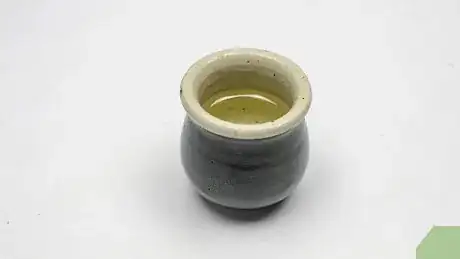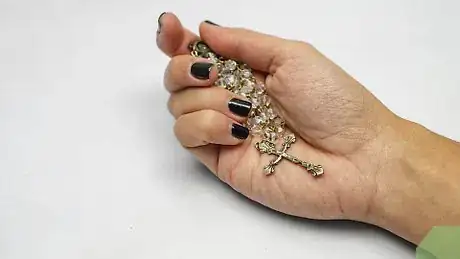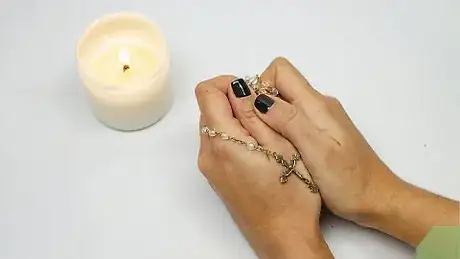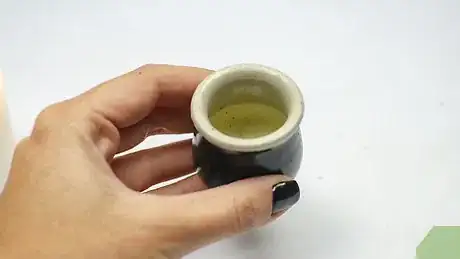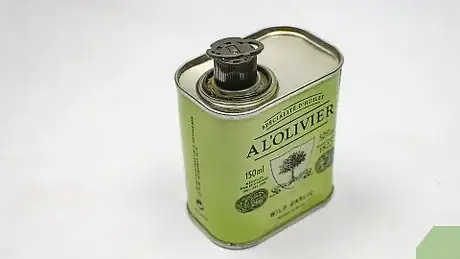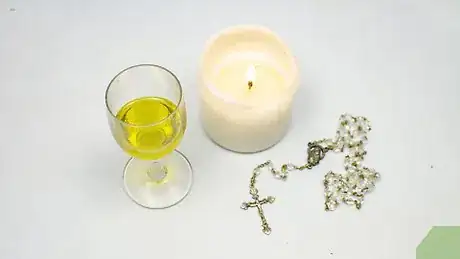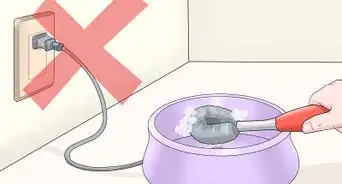This article was co-authored by wikiHow staff writer, Hannah Madden. Hannah Madden is a writer, editor, and artist currently living in Portland, Oregon. In 2018, she graduated from Portland State University with a B.S. in Environmental Studies. Hannah enjoys writing articles about conservation, sustainability, and eco-friendly products. When she isn’t writing, you can find Hannah working on hand embroidery projects and listening to music.
There are 7 references cited in this article, which can be found at the bottom of the page.
The wikiHow Video Team also followed the article's instructions and verified that they work.
This article has been viewed 24,919 times.
Learn more...
In many faiths, the tactic of anointing someone by blessing olive oil and applying it during prayer has been used to help the sick and the ailing. You can use anointing oil on yourself, your loved ones, and your home by using prayer and the word of your God to bless you and those around you. Although applying anointing oil can seem intimidating, the most important part is to call upon your faith and the faith of those around you.
Steps
Blessing Yourself and Others
-
1Place a small amount of oil in a container. Historically, anointing oil was placed in a metal container with a sponge. You can use whatever you have available, like a plastic or ceramic bowl. Pour out a small amount of your anointing oil to make it easier to access.[1]
Tip: If you’d like a historically accurate container, most religious bookstores sell the metal containers with a sponge.
-
2Wipe your right thumb in the anointing oil. Carefully dip the pad of your right thumb into the oil. Make sure a good amount sticks to the tip of your thumb. Wait for a few seconds to allow any drips of excess oil fall off back into the container.[2]
- The right hand is considered holy and using it may bring you closer to God.
Advertisement -
3Draw a cross with the oil in the middle of the person’s forehead. Ask the person you are anointing to step or kneel close to you. Use your oil-dipped thumb to draw a small cross in the middle of their forehead.[3]
- Be gentle as you do this to convey a sense of peacefulness.
- Never anoint someone without their explicit permission.
- You can also anoint yourself by applying the oil to your own forehead.
-
4Cross the anointing oil over any sick or injured areas. If someone is sick or injured, they may have asked you to specifically bless that area of their body. Use your thumb to carefully draw a cross over the area that the person is having trouble with. This could be a broken bone, a head cold, or even a full-body disease.[4]
- If the person’s entire body is sick, you can draw the cross over their forehead.
-
5Bless yourself or the other person in the name of God. As you draw the cross, say a short blessing to anoint the person or yourself with the Holy Spirit. You can say your own blessing or use one from the church.[5]
- Say something like, “Robby Helvey, I anoint you with this oil in the name of the Father, the Son, and the Holy Spirit.”
-
6Pray for any specific needs. Ask the person that you are anointing what ails them or think about what needs to change in your life. You can pray about health, employment status, or general well-being. Make this prayer specific to the person that you are anointing.[6]
- Your prayer can sound something like, “God, I ask that you bless Robby today and help him with his unemployment status. Please let him find a decent, well-paying job soon to provide for his family.”
Applying Anointing Oil to Your Home
-
1Pour the anointing oil into a container that is easy to carry. Use a small dish, like a bowl, to pour out a small amount of your oil. Make sure you can carry it around your home easily so that you can take it from room to room.[7]
- You won’t need a lot of oil to anoint your home since you will only be dabbing a little bit of oil onto each doorframe.
-
2Dab one of your fingers into the anointing oil. Carefully dip 1 finger into the oil so that a little bit sticks to the pad of your finger. You can use any finger on either of your hands. Wait a few moments for the excess oil to drip off.[8]
- You can stick with your right thumb if you are more comfortable with it.
-
3Touch each doorframe in your home with the oil. Walk from room to room with your container of oil. As you pass through each doorway, gently touch the doorframe with the oil from your hands. Dip your finger into the oil as you run out.[9]
- Don’t let the oil drip down the doorframe. Apply just enough to leave a mark.
Tip: Don’t forget about your front and back doors that lead outside.
-
4Say a prayer to bless your home as you walk through it. Invite God and the holy spirit to enter your home and bless it. Ask for your home to be considered a Godly and loving place for all those who enter it.[10]
- You can say something like, “God, I ask you to bless my home. Please let everything said and done in this home be pleasing to you.”
Blessing Your Oil
-
1Purchase olive oil from your local grocery store. Olive oil is significant because it is mentioned in the Bible and other religious texts. You can use plain olive oil, extra virgin olive oil, or scented olive oil.[11]
- Religious stores often sell olive oil that are scented with frankincense and myrrh.
-
2Place the oil in a special container. Since olive oil jars are not very attractive, transfer your olive oil to a secondary container. You can use a small jar that has some meaning to you or a plastic container with a lid. Make sure you use something that is airtight so your oil doesn’t leak over time.[12]
- Most religious book stores sell special containers for anointing oil.
-
3Bless your anointing oil if you are allowed to do so. Check with your religious denomination to make sure that you as a layperson can anoint your oil on your own. If you can, hold a bottle of olive oil in your hands and say a small blessing or prayer to ask God to anoint your oil.[13]
-
4Approach a church leader to bless your oil if you cannot. In some religions, like Catholicism, laypeople cannot anoint their own oil. Ask your religious leader to perform a small ceremony to bless your oil and ask God to make it holy.[14]
- Most often, your religious leader will hold the open container of oil, state their religious status, and then say a small prayer to bless the oil.
-
5Store your oil in a cool, dry place. Your anointing oil can last for a long time, depending on how often you use it. Keep your oil in its airtight container out of the sun in an area that stays cool. A kitchen cabinet is a great place to keep your oil.[15]
Warning: Do not refrigerate your anointing oil. This could cause the color and consistency to change.
References
- ↑ http://w2.vatican.va/content/francesco/en/cotidie/2014/documents/papa-francesco-cotidie_20140127_priests-news.pdf
- ↑ https://sacredheartcanton.org/annointing-of-the-sick
- ↑ https://sacredheartcanton.org/annointing-of-the-sick
- ↑ https://www.churchofjesuschrist.org/study/manual/priesthood-ordinances-and-blessings/administering-to-the-sick?lang=eng
- ↑ https://www.kencollins.com/instructions/how-02.htm
- ↑ https://www.kencollins.com/instructions/how-02.htm
- ↑ http://bethelcolony.org/anointing-your-home-with-oil/
- ↑ https://www.kencollins.com/instructions/how-02.htm
- ↑ https://www.kencollins.com/instructions/how-02.htm
- ↑ http://bethelcolony.org/anointing-your-home-with-oil/
- ↑ https://www.catholiceducation.org/en/culture/catholic-contributions/the-use-of-sacramental-oils.html
- ↑ https://www.catholiceducation.org/en/culture/catholic-contributions/the-use-of-sacramental-oils.html
- ↑ https://www.kencollins.com/instructions/how-02.htm
- ↑ https://www.churchofjesuschrist.org/study/manual/priesthood-ordinances-and-blessings/consecrating-oil?lang=eng
- ↑ https://www.catholiceducation.org/en/culture/catholic-contributions/the-use-of-sacramental-oils.html
